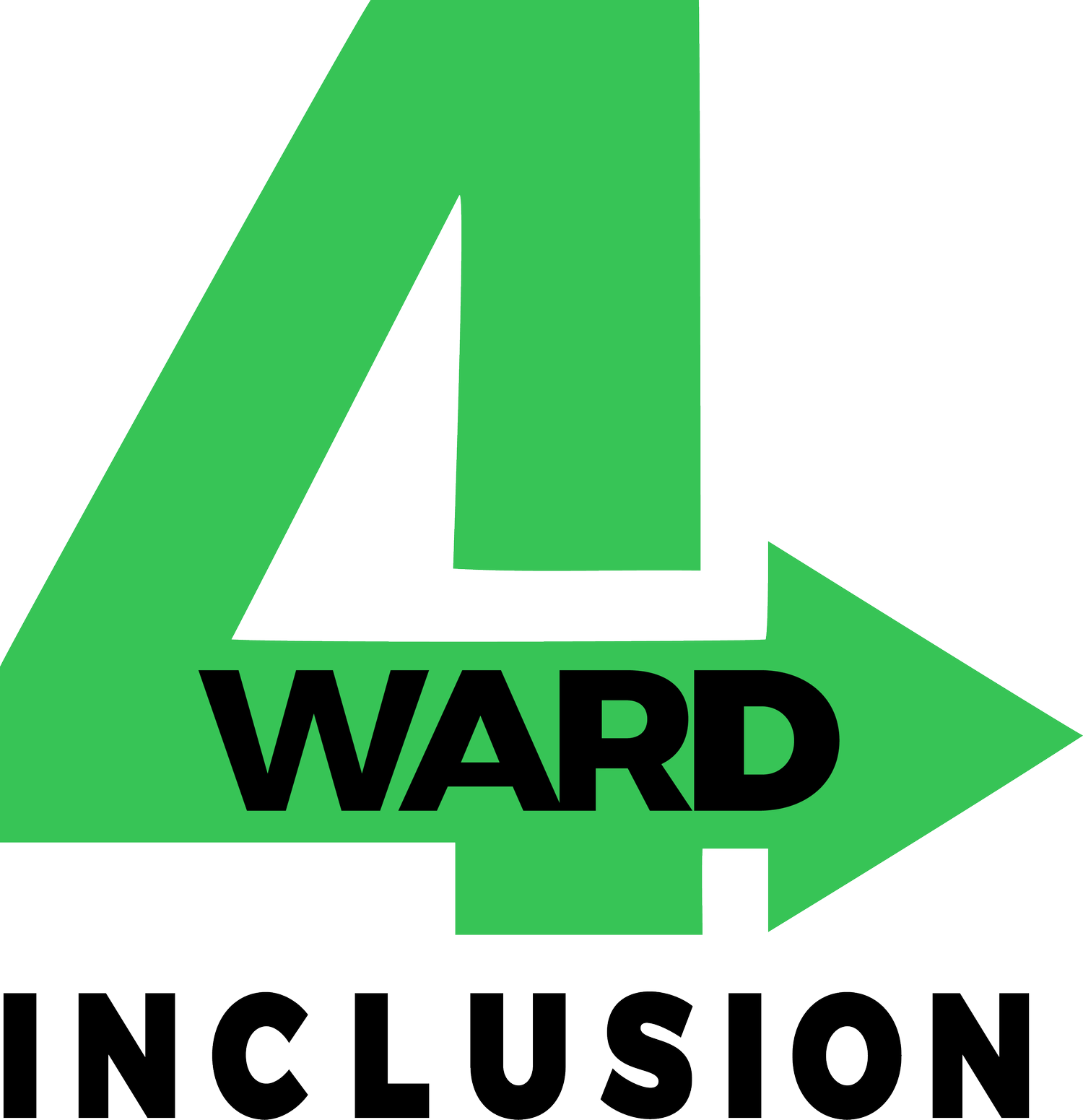“The word equity is often controversial and confusing. When it is brought up to an economically diverse audience, those with affluence and privilege often become squeamish and start looking for the exits, while those in financial need often become more engaged, hoping that a focus on equity will bring relief and attention to what they lack. ”
Promote Vulnerability. Embrace Diversity. Shift Mindsets. Develop Leaders.
4ward Inclusion
was founded in 2017, and become a 501(c)3 non-profit organizaion soon after. While the education and political climate have shifted dramatically since 2018, the solutions that we were developed to reduce and dismantle are still prevalent in low-income communities of color. 4ward Inclusion was created to provide racial equity and trauma-informed programs to 4 groups- youth, educators, parents/caregivers, and community organizations. Our mission is to create the conditions that youth from marginalized populations need to be successful in life, so we work with the entire village that raises each child.
Jo Beavers founded 4ward Inclusion in her twenties as she processsed the racial trauma after an experience that was her first (and only) time in handcuffs in her neighborhood, just one year before the death of Trayvon Martin. Her experiences took her directly into the education space where she became 1 of 3 Black women to launch the Equity and Antioppression team that would lead a 200 person education nonprofit on it’s journey to become an anti-racist organization.
Jo views adversity as a superpower that can bring diverse groups of people into one shared space for learning and problem solving. She applies her experience as a licensed Social Worker to leading 4ward Inclusion, and after confronting racial discourse and the grief of her grandmothers passing, Jo developed the Move 4ward framework which she defines as one’s ability to shift their mindset, change their behavior, and recover from past trauma.
There were 32 individuals in total
32 parents, siblings, educators, police officers, and more who deserved a space to unpack and explore their emotions, relearn history, and begin the journey of identity development, in ways that are identify the parts of their identity that are marginalized.
OUR BELIEFS
In 2020, thousands of individuals have attended our workshops learning new ways to Move 4ward, centering the experiences of marginalized populations.
The person comes first
Our goal is to have an internal culture that exemplifies what our clients expect in their organizations and schools. Through our work we create community and equity in education. But it's our team, clients and program participants that make our mission possible. By approaching different experiences through an individualistic perspective, we're able to eliminate bias and racist behavior.
Embrace Diversity
We enthusiastically seek information about cultures different than our own through cultural proficiency. Cultural proficiency enables inclusion and creates safe spaces where each individuals' experience is respected and incorporated into the school or organization. This level of awareness enforces high-quality education, emotional intelligence, and grit.
Shame Limits
Racial equity, justice, inclusion, and belonging work organically brings about shame. Shame is often conflicting and it can be the cause of defensiveness, violence, bullying, and other forms of aggression. When individuals feel shame the response is deflecting or shutting down. In our work, we develop school and organizational climates that promote vulnerability and increase psychological safety to increase productivity and our ability to have open and honest conversations both personally and professionally.
Vulnerability is a superpower
One researcher defines vulnerability as “uncertainty, risk, and emotional exposure”. It's impossible to Move 4ward without engaging in conversations of racism, power, and identity. Vulnerability is a strength that allows for honest conversations, so individuals can unpack issues that impact youth development. Through vulnerability we create community.
In 5 years
Our youth, educator, caregivers and community organization programs have shifted mindsets across the United States. There are 3 pillars that guide our direction are education, empowerment and exploration. Our programs provide restorative community solutions through social and emotional learning, skill-building and leadership development.



